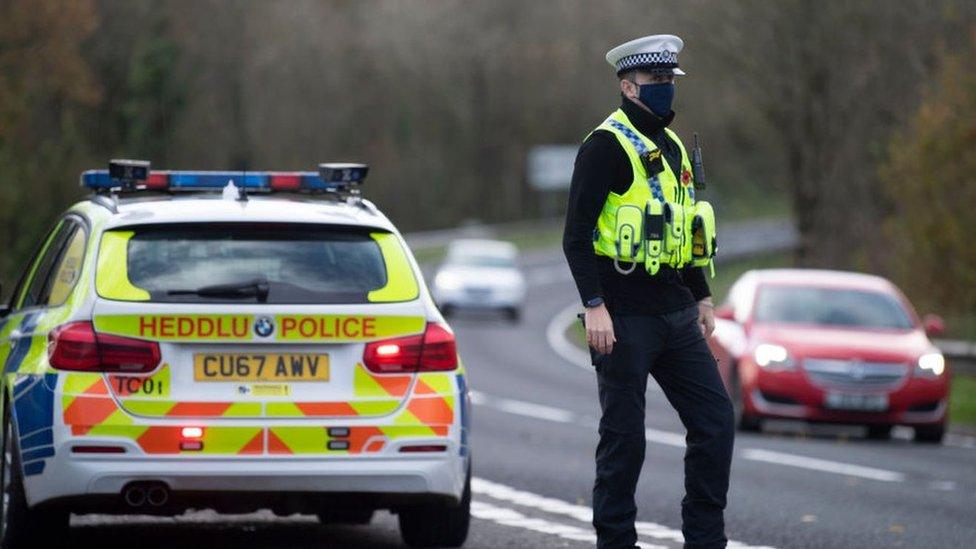Covid: Christmas restrictions warning if Wales' cases rise
- Published
- comments
Mark Drakeford says people should reduce contact with others and avoid travelling unless it is necessary
People in Wales have been warned they risk facing strict Christmas measures if Covid-19 infection rates surge.
First Minister Mark Drakeford has called for people not to "fritter away" lockdown "success" after seeing the "first signs" of the firebreak working.
But if Covid cases rise, then people will not have extra Christmas freedoms, he added.
"Our top priority has to be dealing with a public health emergency," Mr Drakeford said.
He said during the Welsh Government's coronavirus briefing that the four UK nations were working on plans for common rules around the festive period, with more talks due next week.
Mr Drakeford also said he was trying to avoid the situation in Northern Ireland, where a new lockdown has been announced, and Scotland, where large areas have seen stricter restrictions.
"If our hospitals are overwhelmed then we will not be able to have the Christmas we would all like - people's lives and people's health come first," he added.
Mr Drakeford said "it's in our hands", adding: "If we do the things that we have been talking about ever since the lockdown period, then we can still have a pathway through to Christmas.
"If people react to the end of the firebreak as though coronavirus is over and there's nothing more we need to do, then it's very likely indeed that we will see coronavirus come flooding back into our communities and then we will be faced with another series of difficult decisions.
"But that's why my message today to people is that doesn't have to happen."
However, he did question whether five days of lockdown to compensate for Christmas festivities was a "reasonable payback".
"I think the message is from people in Wales that they would like more of an opportunity to meet with family and friends [over Christmas], he said.
"But, I have to say to people, if that's what we do then we will have to act afterwards, in a way that deals with the consequences."
Watch how the case rates have changed in the past six weeks across Wales
Mr Drakeford also urged retailers to rethink Boxing Day: "Think carefully about whether or not patterns of sale beyond Christmas can be smoothed out, done over a longer period, rather than encouraging people to all rush to the shops together."
The first minister and the UK's other leaders met Cabinet Office minister Michael Gove on Wednesday and will meet again next Wednesday to agree a "common plan to provide people with new flexibilities over Christmas".
But he called on people to "act responsibility and sustain the benefit" of the firebreak or risk more pre-Christmas - or possibility even festive season - lockdown restrictions.
Plaid Cymru said the Welsh Government should be taking steps to ensure there was no need for another national lockdown.
Plaid MS Delyth Jewell said: "Whether or not we enter into further lockdowns or further restrictions in the coming months - that's down to how effective the Welsh Government is in getting the problems with test and trace fixed, making sure mass testing is introduced in all areas that have high Covid-19 prevalence and making sure the messaging to the public is clear.
"If the public are confused about how they should be responding to restrictions then maybe the Welsh Government needs to look more carefully at the messaging it is putting out."
The first minister would not commit to a target for vaccinating people by a certain point.
In Scotland it has been suggested up to a million people could be vaccinated by the end of January without delays.
Mr Drakeford said: "I have yet to see the actual figures of the number of vaccinations that will come to Wales this side of Christmas.
"I'm going to stick to the way we've done things throughout the pandemic, which is to have a plan and to work on the plan and to then make an announcement, rather than to opt for eye-catching headlines which you then have to scramble to find a way to deliver.
"As soon as we know the number of vaccines we have, we will let people know how those vaccines are going to be delivered and who they will be delivered to."
Wales' 17-day firebreak ended on 9 November and Mr Drakeford earlier told BBC Radio Wales that the chief medical officer's analysis said the evidence was now "good enough" that it did "succeed".
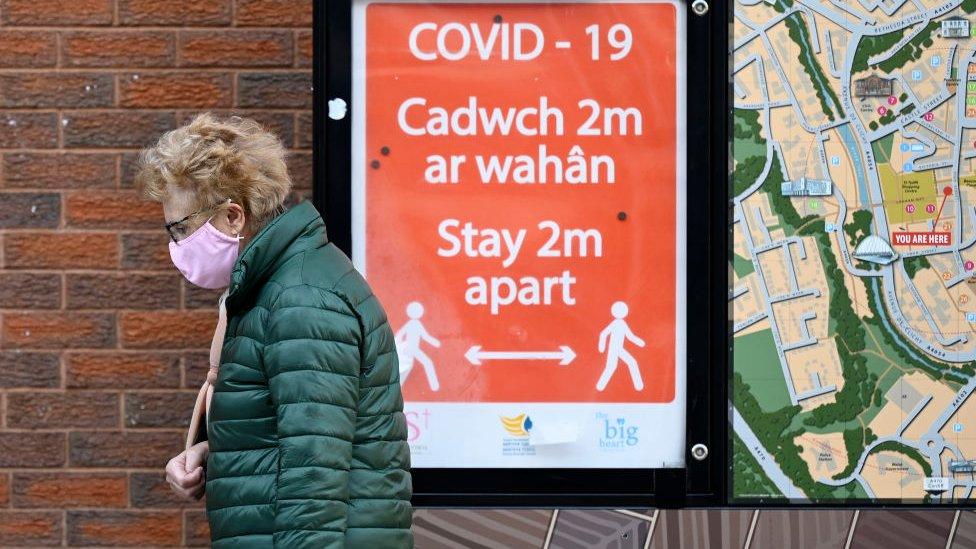
Some parts of the south Wales valleys have seen among the highest rates in the UK
He said the amount of people with coronavirus in hospital was "stabilising" and the R number in Wales last week "could have been below one".
"What we need to see is incidence in the community falling and that translating into falling numbers of people in hospital or needing critical care," he added.
"We're seeing the first signs of the growth of people in hospital beds reducing and bed numbers stabilising.
"What we have to do is build on that and make sure we don't fritter all that away by going back to the behaving in ways that will drive those numbers back up again."
What do the latest figures tell us?

Hospital admissions on Thursday were running at a daily seven-day average of 75 for confirmed and suspected Covid-19 - the lowest for more than a month.
The latest infection survey in Wales suggested Covid-19 cases peaked at the end of October. Along with case rates from tests results from Public Health Wales, it is a further indication that infections could be easing.
The Office for National Statistics (ONS) takes throat and nose swab tests from more than 17,600 people at random in Wales over six weeks.
From those results, it can estimate that 18,400 people in Wales had Covid-19 in the week to 14 November. This is one in 165 people.

"Positivity rates in Wales seem to have peaked around the end of October, with rates decreasing over the past two weeks," said ONS.
Meanwhile, the reproduction rate - the R-number - has come down in Wales to being between a range between -0.9 to 1.2.
After Wales' firebreak ended, restaurants, pubs, gyms all reopened and infection rates has generally fallen over the past week in most places.
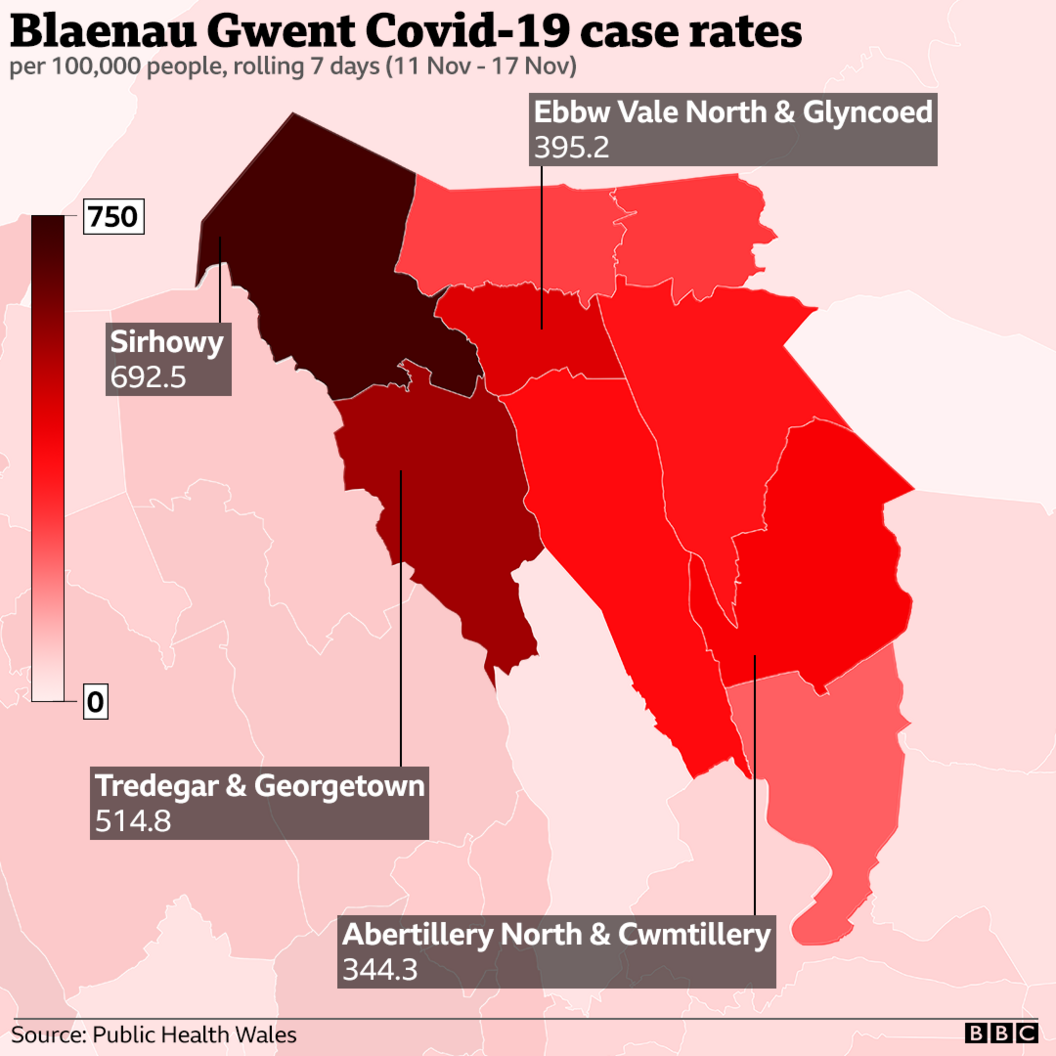
However, Blaenau Gwent - ranked 75th in most recent comparable list of UK Covid hotspots - has continued to see a rise in cases, taking it to a rate of 365 cases per 100,000 people.
Its proportion of positive cases - 18.1% - is also the highest in Wales.
Sirhowy and Tredegar are showing the highest local case rates in Wales too, with Ebbw Vale also amongst the worst 20.

Other parts of the south Wales valleys have started to see an easing off their case rates, while the average in Wales is now 12.7 cases per 100,000 people.
"Cases per 100,000 have fallen every for the last 10 days," Mr Drakeford told BBC Radio 4.
"We have seen incidence rates going down and positivity rates going down. At the height, Merthyr had an incidence rate of 760 cases per 100,000 of the population now it is down below 260.
"So our assessment is that the firebreak has done what we hoped it would do.
"We are hoping that will continue for a bit longer. Our aim is to persuade people in Wales to act responsibly and sensibility now so that we sustain the benefit of the firebreak as long as we can."
Across the UK, there have been more than 1.4 million positive tests and more than 53,000 deaths - with almost 23,000 confirmed cases in the past 24 hours.
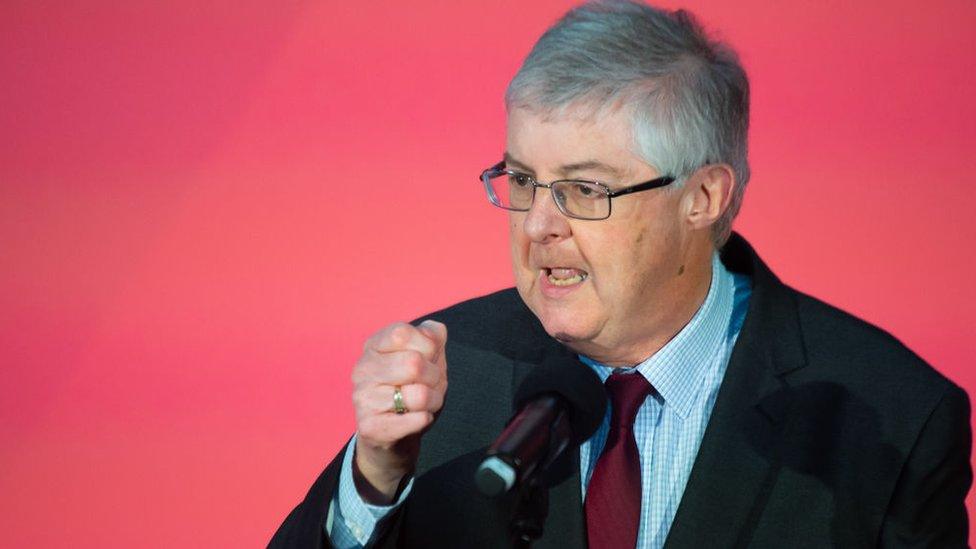
Mark Drakeford says he hopes he doesn't have to impose more restrictions before Christmas
The Welsh public have already been warned more restrictions were "inevitable" if the current regulations cannot keep coronavirus cases down.
Public Health Wales' outbreak response director Giri Shankar said the firebreak lockdown halted the rapid surge of Covid cases - but it was not yet known if the action has been enough.
From Saturday, all people working and living in Merthyr Tydfil will be offered a Covid test.
- Published20 November 2020
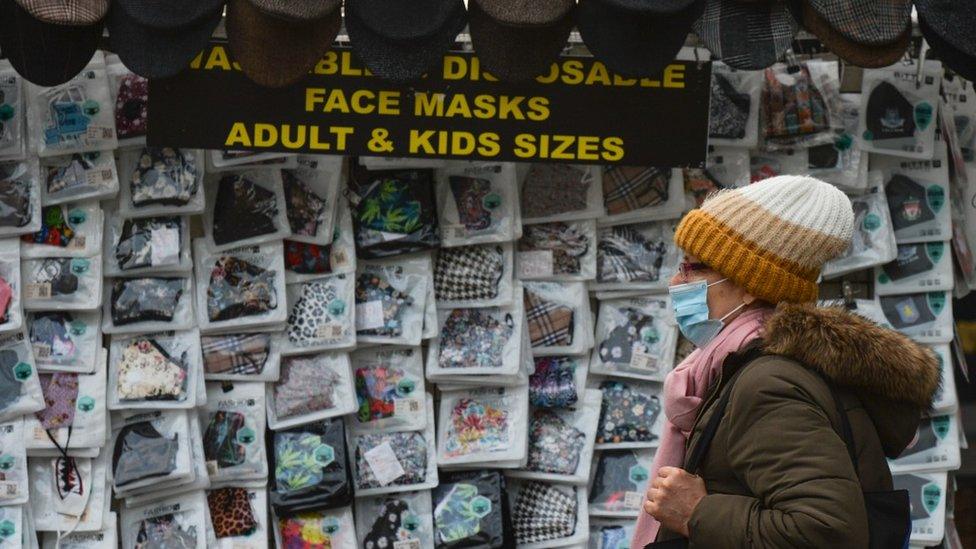
- Published28 May 2024

- Published19 November 2020
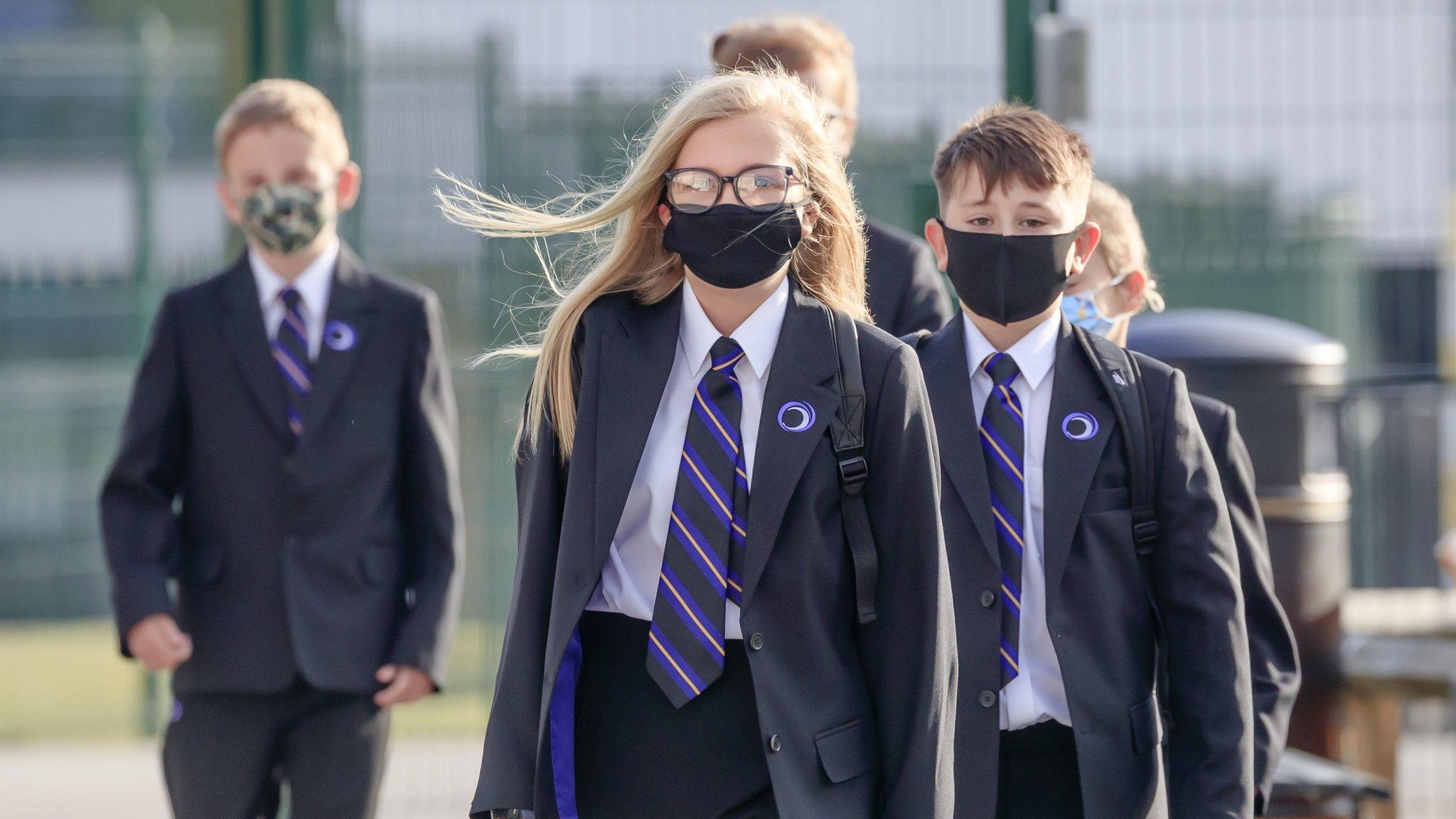
- Published19 November 2020
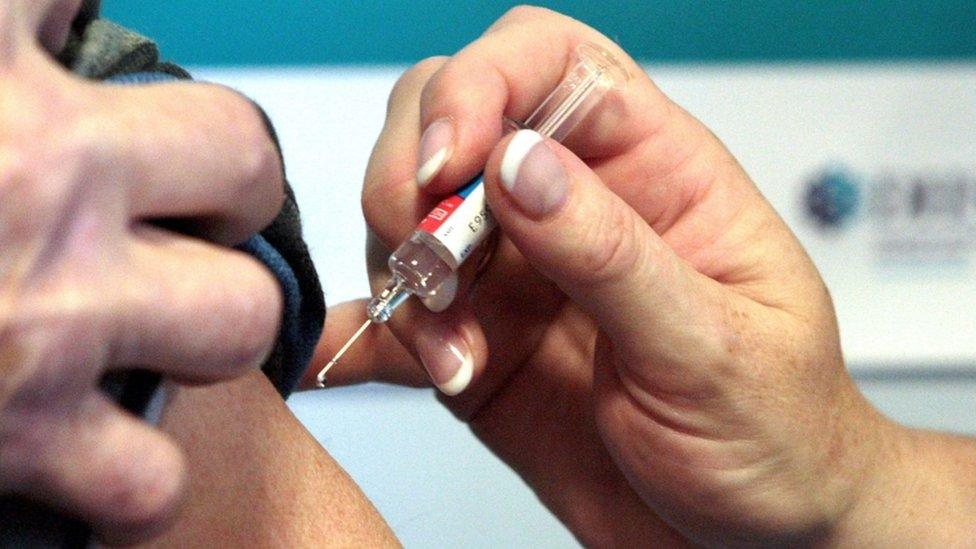
- Published19 November 2020
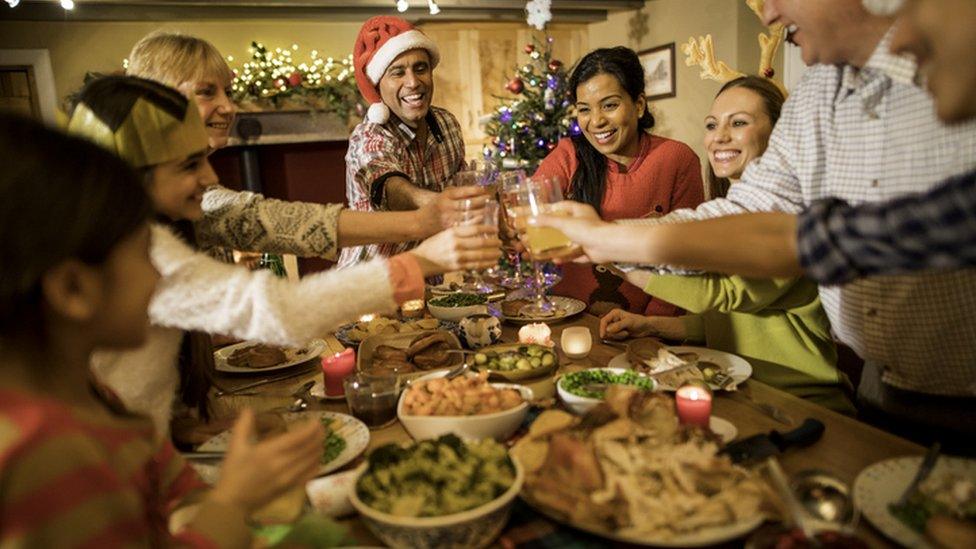
- Published26 November 2020
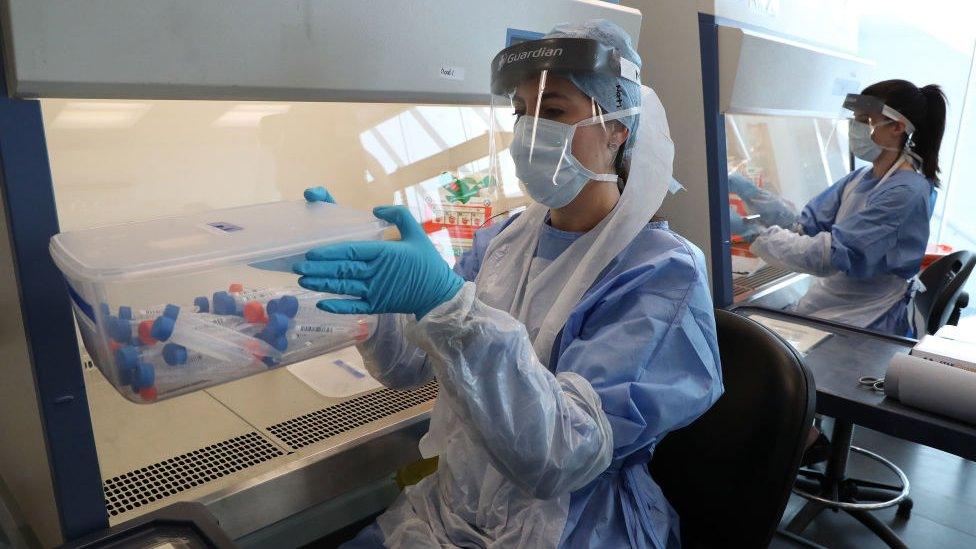
- Published19 November 2020
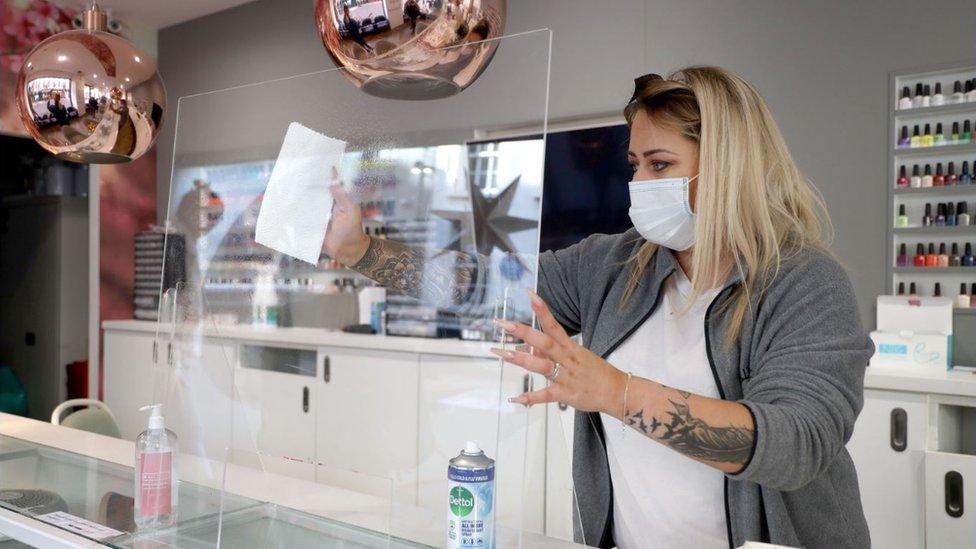
- Published18 November 2020
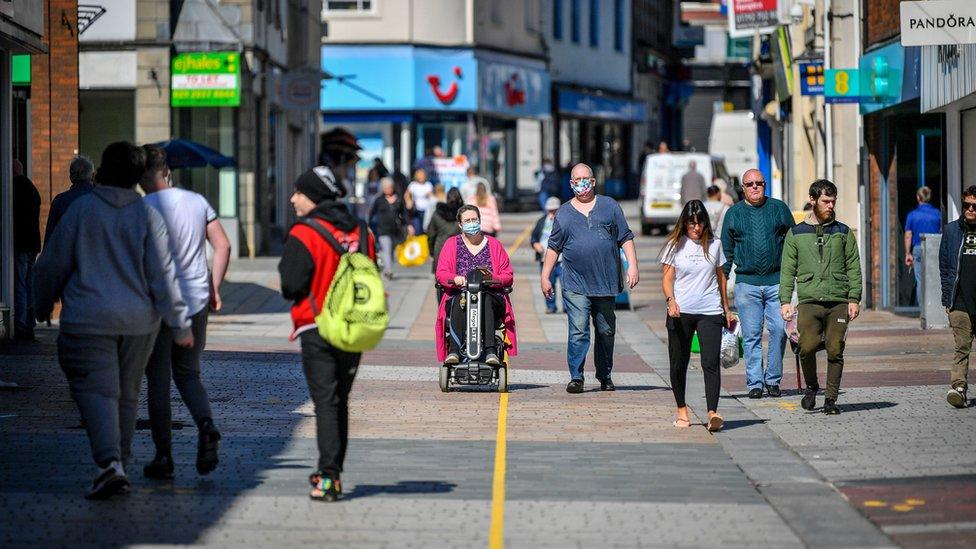
- Published18 November 2020

- Published1 July 2022

- Published17 November 2020

- Published16 November 2020

- Published6 November 2020
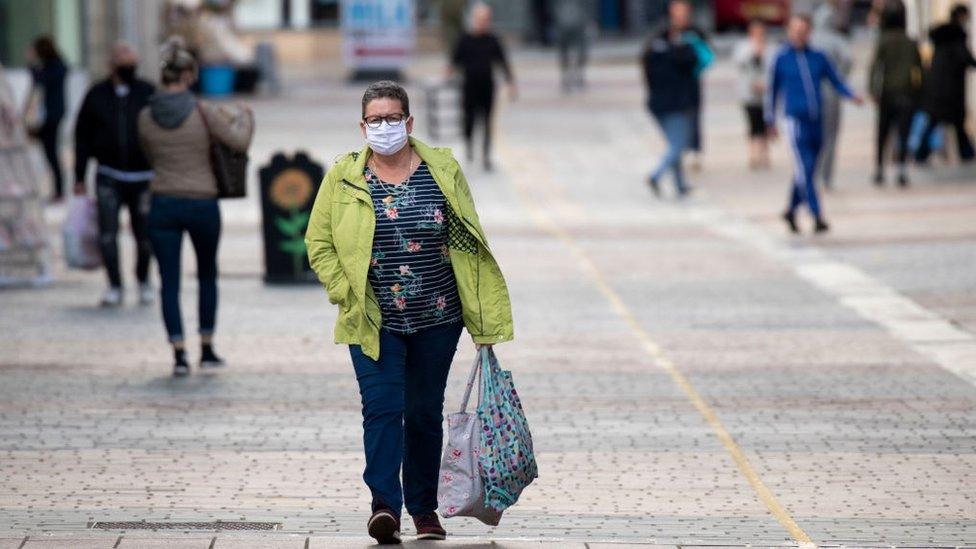
- Published9 November 2020
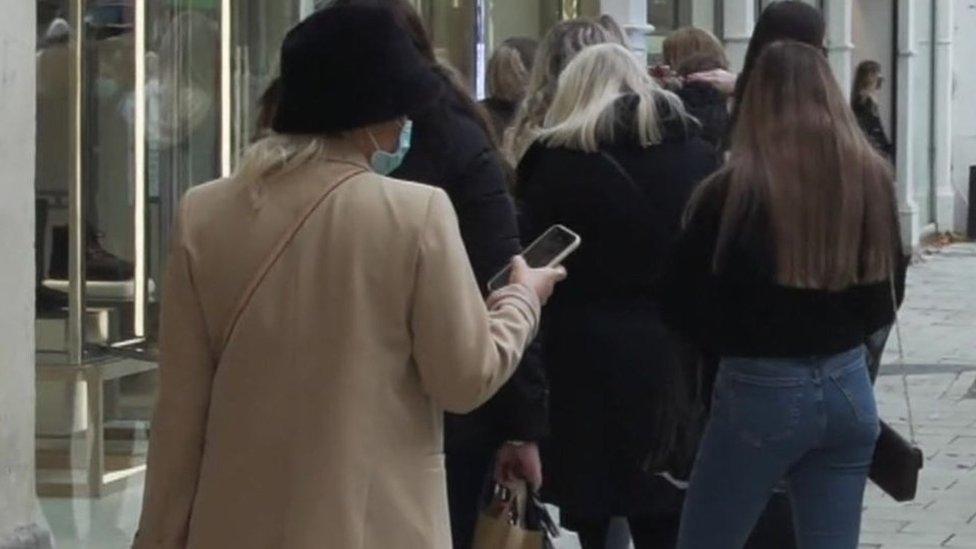
- Published6 November 2020
